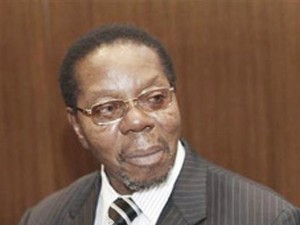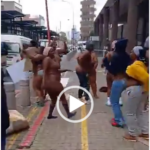Malawi citizens Reaction to the Presidents CALL for dialogue after 20July Demonstrations
Published on July 21, 2011 at 6:13 PM by FACE OF MALAWI
 During the 30minute phone-in program between 5.30pm and 6.00pm, over 60% of the respondents felt that the call for dialogue by President Mutharika is late. They believed that the president should have called for the dialogue yesterday not after the demonstrations. This is because the path taken to demonstration was taken as a measure of desperation on the part of civil society leaders. About 40% of the respondents felt the president was justified to call for the dialogue as away of finding common solutions.
During the 30minute phone-in program between 5.30pm and 6.00pm, over 60% of the respondents felt that the call for dialogue by President Mutharika is late. They believed that the president should have called for the dialogue yesterday not after the demonstrations. This is because the path taken to demonstration was taken as a measure of desperation on the part of civil society leaders. About 40% of the respondents felt the president was justified to call for the dialogue as away of finding common solutions.
The issue here is about timing. The President after winning landslide victory in the 2009 General Elections adopted a dictatorial attitude. He even wanted to take over management of the courts, disobeying court orders. Any leader who expects to govern a country without obeying courts cannot succeed. But that is what the president has been doing. No wonder that the civil society leaders went for the devaluations.
The other problem that has negatively affected the leadership performance of the president is his failure to realize that he is a national leader not only for his ethnic group. Ethnicity is the recipe for nepotism and corruption. This is why the most successful businesses belong to individuals with connections to the president. It is unfortunate that the president has been greedy to enrich himself through corruption and nepotism. This explains why some demonstrators targeted the businesses owned by his associates.
What happened yesterday is a mirror image of things likely to happen after the president is out of government. Why should citizens contribute to the growth of businesses owned by his friends? What he needs to know is that Malawians contribute to the growth of personal businesses of his friends when he awards large contracts to import fertilizers to his friends. This is unethical and high level corruption.


